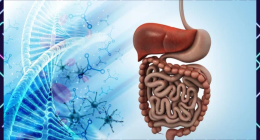Gastric cancer, a chilling specter in the global health arena, casts a long shadow over millions of lives each year. Its tendrils reach far and wide, claiming over 7% of cancer-related deaths. Yet, within this vast landscape, a distinct subset emerges – Hereditary Diffuse Gastric Cancer (HDGC) – a foe as enigmatic as it is aggressive.
Hereditary Diffuse Gastric Cancer (HDGC) is a rare but aggressive form of stomach cancer linked to genetic mutations. Unlike its more common counterparts, HDGC hums a different tune, orchestrated by the invisible hand of heredity. While only about 1-3% of gastric cancers have a hereditary basis, HDGC accounts for roughly 10%, setting it apart with its distinct characteristics and familial clustering.
Hereditary Diffuse Gastric Cancer Symptoms
HDGC often presents with symptoms later in life, making early diagnosis challenging.
Here are some of the common symptoms of HDGC:
- Stomach pain or discomfort: This is often the most common symptom, typically felt in the upper left abdomen. The pain may be dull, aching, or burning, and can come and go.
- Nausea and vomiting: These symptoms can be intermittent or persistent, and may or may not be associated with blood.
- Loss of appetite and weight loss: People with HDGC may experience a gradual or rapid loss of appetite, leading to unintentional weight loss.
- Difficulty swallowing (dysphagia): This symptom is less common in early-stage HDGC but may occur as the cancer progresses.
- Early satiety: Feeling full after eating even small amounts of food.
- Bloating and indigestion: These symptoms can be similar to those of other digestive disorders, but may be more persistent or severe in people with HDGC.
- Ascites: Buildup of fluid in the abdomen.
- Jaundice: Yellowing of the skin and eyes.
- Lymphadenopathy: Enlarged lymph nodes.
It’s important to note that these symptoms can be non-specific and can also occur with other conditions. However, if you experience any of these symptoms, especially if you have a family history of HDGC or gastric cancer, it’s important to consult with your doctor for further evaluation.
Early diagnosis and treatment are crucial for improving the prognosis of HDGC. If you have any concerns about your risk for HDGC, talk to your doctor about genetic testing and preventive measures.
The Genetic Maestro: CDH1 and the Discordant Notes
Imagine the stomach as a bustling city, its epithelial cells forming the tightly-knit communities that keep things functioning smoothly. The CDH1 gene acts as the city’s architect, crafting a protein called E-cadherin – the glue that binds these cellular communities together. Mutations in CDH1 are akin to rogue architects, throwing wrenches into the city’s blueprint. Weakened adhesion, like crumbling bridges, allows cells to break free and embark on a journey of uncontrolled growth – the hallmark of cancer.
Over 100 unique mutations in CDH1 have been identified, each a discordant note in the symphony of a healthy genome. In roughly 40% of HDGC families, these mutations act as the conductor, orchestrating the tragic progression of the disease. But the orchestra of HDGC isn’t a solo act.
The Supporting Cast: A Chorus of Complexity
Like a misplaced instrument, each gene mutation in HDGC adds a layer of complexity to the overall score. Genes like CTNNA1 and MAP3K6 join the chorus, their dysfunctions contributing to the disharmony that defines this cancer. Understanding this intricate interplay of genetic factors remains a key challenge, but it holds immense promise for unlocking new avenues of prevention and treatment.
A Beacon of Hope in the Symphony of Despair: Prophylactic Total Gastrectomy
Despite the lingering mysteries, a beacon of hope pierces through the darkness – Prophylactic Total Gastrectomy (PTG). This drastic surgery, though akin to silencing the entire orchestra, offers a life-saving option for individuals with a ticking time bomb of CDH1 mutations and a family history of HDGC. By removing the stomach, the potential breeding ground for cancer, PTG effectively silences the discordant melody and prevents the tragic symphony from playing out.
While PTG comes with its own set of challenges, it stands as the only definitive preventive measure currently available for these high-risk individuals. It’s a testament to the lengths we’re willing to go to rewrite the script of HDGC, replacing its tragic verses with a triumphant chorus of prevention.
The Unfinished Symphony: A Call to Continued Research
The battle against HDGC is far from over. Unraveling the complexities of its genetic drivers, deciphering the supporting roles of other genes, and refining our understanding of the interplay between genetics and environment are crucial steps in the fight. With continued research and unwavering dedication, we can hope to one day rewrite the script of HDGC, replacing its tragic verses with a triumphant chorus of prevention and cure.
The journey into the world of HDGC is a testament to the power of scientific inquiry and the enduring human spirit in the face of adversity. It’s a story that reminds us that even the most enigmatic symphonies can be unraveled, note by note, mutation by mutation, until one day, the music of hope resonates loud and clear.
ALSO READ: Pancreatic cancer treatments & new drug screening: A beam of hope for patients
Image source: Depositphotos









